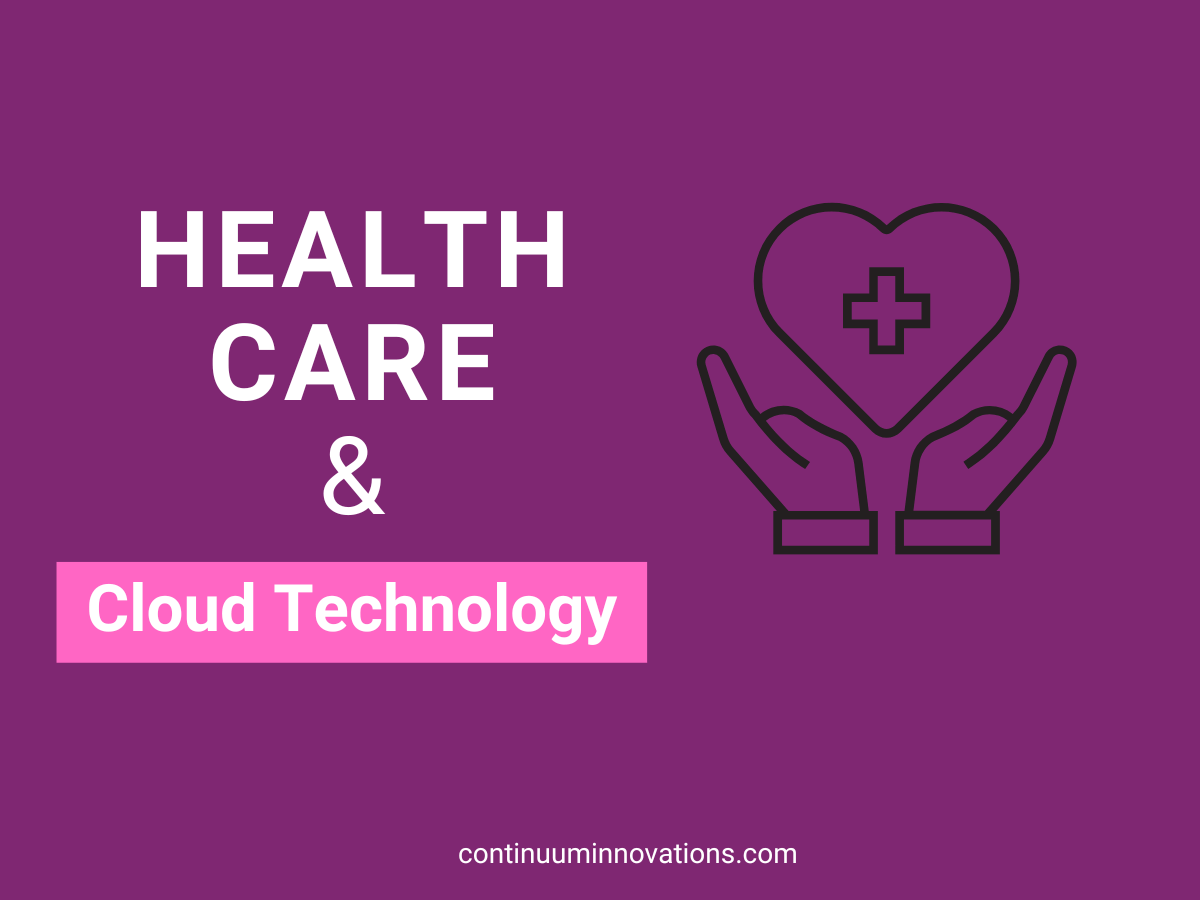How is Cloud In Healthcare Benefitting The Industry
Ever since the pandemic affected the world, businesses have been making changes to their operational tactics. The healthcare industry –presumably the most impacted of all – is no different as it embraces cloud technology rapidly. Gartner says that despite security concerns, the healthcare industry is on a fast track to cloud migration for various reasons.
But how exactly is cloud technology revolutionizing the healthcare industry? Read this blog to find out some ways cloud services have made the healthcare industry more capable of facing challenges such as the pandemic.
Cloud Technology and Health care
The increased use of Electronic Medical Records (EMR) is the most prominent reason behind the adoption of the cloud in the healthcare industry. It is much helpful to track the past and present medical records of the patient which is beneficiary for both sides. By driving medical records into the cloud, we can get accurate details like Medicines details, treatments, chemists, etc in one shot.
Gone are the days when the healthcare industry could stick to mundane practices for patient care. The pandemic has taught every industry that innovation is the catalyst for change in the coming years. Like every industry, cloud platforms have provided the healthcare industry with innovative tools to improve patient care, diagnostics, and infrastructure management.
Accessible, agile, and scalable. Cloud-managed services allow healthcare professionals to rely on a single platform for all their needs. Patient records, operations, telemedicine, and everything else can be integrated into a single platform that is accessible to everyone, everywhere.
How is Cloud In Healthcare Benefitting The Industry?
Expansion of telemedicine
Telemedicine’s development has been hastened by the use of cloud computing in healthcare. Apps that run in the cloud and telemedicine platforms improve accessibility, provide patient health insurance during treatment, prevention, and recuperation, and help share healthcare data.
Additionally, several apps offer more sophisticated features like virtual drug usage analysis or video conferencing for doctor sessions. In a nutshell, cloud computing is essential for improving telemedicine-based medical treatment.
Patient Experience Is Improved
By leveraging cloud technologies for healthcare, doctors can ensure improved patient involvement by giving real-time access to lab test results, medical data, and doctors’ notes. With a more accurate understanding, it aids patients in precisely maintaining their health.
Furthermore, patients no longer undergo unnecessary testing or extra prescriptions thanks to cloud computing in healthcare.
Easy interoperability
Creating data linkages via the healthcare system is the main goal of interoperability, regardless of where the data is stored. Healthcare interoperability is made possible by cloud technologies, which also make patient data available for flexible dissemination and the acquisition of insights to speed up healthcare delivery.
Medical practitioners may access patient medical data gathered from various sources, distribute it to key stakeholders, and deliver protocols on time thanks to cloud computing in healthcare.
Cost-Effective
Cloud companies offer on-demand pricing structures that are highly scalable. This makes it ideal for the healthcare industry, looking for cost-effective IT solutions. Further, the need for physical data storage centers, hardware, and staff is eliminated as healthcare institutions pay cloud services to cater to all their business needs.
Efficiency Enhanced
The healthcare industry can improve its efficiency by using cloud features such as data analysis and artificial intelligence. Leveraging the power of AI, the abundance of data can be put to use in the correct way as the healthcare industry upscales its disease diagnostics, predictive capabilities, and treatments.
Better Disaster Management
Even before the pandemic, it was predicted that the healthcare industry’s migration to the cloud is imminent. Now, as the pandemic proved to be a testing ground for disaster management via cloud platforms, it’s imperative that the healthcare industry embraces the technology. In the coming years, as the healthcare industry will have bigger challenges, the cloud will be a reliable solution.
Safety Above Everything
Due to the nature of sensitive data that the healthcare industry possesses, healthcare professionals have long been cautious of cloud-managed infrastructures. However, human safety amalgamated with data security is only achievable by moving to the cloud.
Steps Associated with Effective Cloud Computing in Healthcare
Cloud computing is beneficiary to the healthcare sector just like any other industry but proper steps and methodologies are needed to incorporate to get rid of some risks
- Decide Your Objectives
- Derive the best cloud migration strategy
- Evaluate the Investments
A proper Cloud Migration Strategy is much important to migrate all your workloads from the cloud. Our Cloud experts possess a high skill set in migrating workloads to the cloud.
Who We Are?
We ContinuumInnovations, the professional DevOpS consultants, offer end-to-end consultancy services for any kind of business. Our business experts get into your business and give you prolific solutions for all your business needs. For the past two years, we have been providing spotless services around the USA.
Are you the one looking for complete DevOps consultants then, reach out to us!
Our team helps improve your time to market and get the first mover’s advantage. We also provide reliable AWS-managed cloud services and AWS cloud consultancy services without you having to break the bank.
We have happy clients all over the US, be our next one and run a butter smooth business. If you run a healthcare business in New Jersey, get in touch with us at Continuum Innovations.



